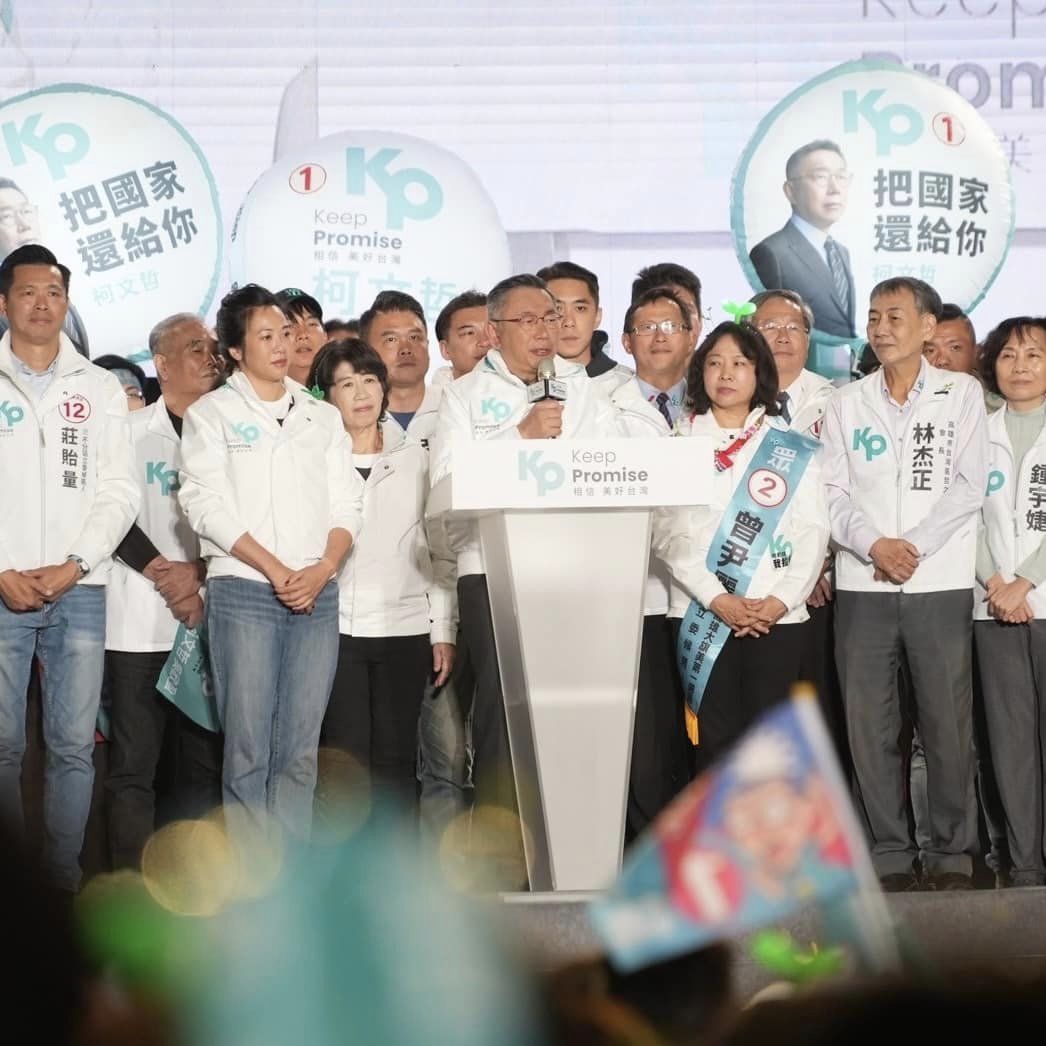by Brian Hioe
語言:
English
Photo Credit: Ko Wen-je/Facebook
THE TPP HAS found itself in hot water over Ma Chi-wei, a former party spokesperson who is now running as an independent legislative candidate, who was found to have received funds from the Chinese government to support her campaign. The funds were transferred through cryptocurrency, ironically enough, as the first major public incident in which the CCP has been found to distribute funds through cryptocurrency to candidates it backs in Taiwan.
Ma is running in Taoyuan and was detained afterward, as the first political candidate to be detained ahead of the election, on charges of violating the Anti-Infiltration Act. For its part, the TPP has sought to distance itself from Ma, expelling her for violating the party’s regulations.
This hard stance to cut ties with Ma perhaps serves to illustrate how the TPP presently aims to signal moderation on cross-strait issues. Party chair Ko Wen-je’s most recent stance on cross-strait relations, as far as can be gathered from his many shifts on the issue, is that he mostly intends to maintain the cross-strait policy of the Tsai administration but to engage in more communication with China.
This takes place in a campaign season in which Ko proposed reviving the Cross-Strait Services Trade Agreement, the controversial cross-strait agreement that led to the eruption of the Sunflower Movement in 2014, seeing as the bill would have allowed for Chinese investment in Taiwan’s service sector industry and it was feared this would have deleterious effects on Taiwan’s political freedoms. Likewise, Ko even proposed building a bridge between Kinmen and Xiamen in past months, though Ko largely shrugged off criticisms that this could be dangerous for defending Kinmen in the event of war.
Even if the TPP has tried to frame itself as beyond pan-Green and pan-Blue political distinctions, or otherwise positioned itself as a de facto pan-Blue party that is more moderate on cross-strait relations, the TPP has still sought to retain friendly relations with the KMT. With many expecting that the DPP will lose its current majority in the Legislative Yuan, this could lead to the TPP being able to control the balance of power between the DPP and KMT. Both the KMT and TPP have indicated interest in coalition governance in the new legislature.
Yet this is not the first time that TPP associates come under scrutiny for links to the CCP either. This previously occurred when Xu Chunying, the chair of the Taiwan New Residents Development Association, which advocates for the rights of foreign-born spouses in Taiwan, was floated as a legislative candidate for the party. Xu is known to have previously been a CCP member, leading to a political firestorm against the party.
 TPP presidential candidate Ko Wen-je (center). Photo credit: Ko Wen-je/Facebook
TPP presidential candidate Ko Wen-je (center). Photo credit: Ko Wen-je/Facebook
One notes that at that point in time, the TPP sought to defend Xu, with Ko’s campaign director, Huang Shan-shan, claiming that the DPP was being discriminatory. In particular, the pan-Blue camp often seeks to appeal to Chinese spouses who have ROC nationality, as a sizable demographic that it courts for votes. This occurs through pan-Blue parties framing themselves as defenders of the interests of Chinese spouses in Taiwan against the discriminatory actions of the DPP against them.
Clearly, the political climate has shifted, that the TPP sought to quickly cut ties with Ma–even if it is also to be noted that Ma is not currently serving as a candidate of the party.
Yet the phenomenon of TPP associates with close ties to the CCP goes to further illustrate that the party is, in fact, a pan-Blue party despite its rhetoric sometimes framing itself otherwise. The TPP’s candidates are largely drawn from former pan-Blue politicians, who may be former members of the KMT or other pan-Blue parties that split off from the KMT such as the PFP and New Party.
That TPP associates have been backed by the CCP proves an interesting phenomenon, seeing as current trends in Chinese disinformation aimed at influencing the election attack not only DPP candidate Lai Ching-te but also Ko. This seems to suggest that the CCP prefers for the KMT to win, rather than Ko, or just views Ko as dividing the pan-Blue vote in a manner that leads to a DPP victory. It could be that the CCP still backs some individuals close to the TPP when it comes to local elections, or that it does aim to hedge its bets in terms of supporting pan-Blue candidates.

